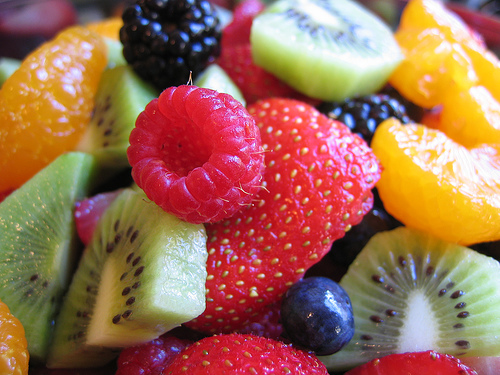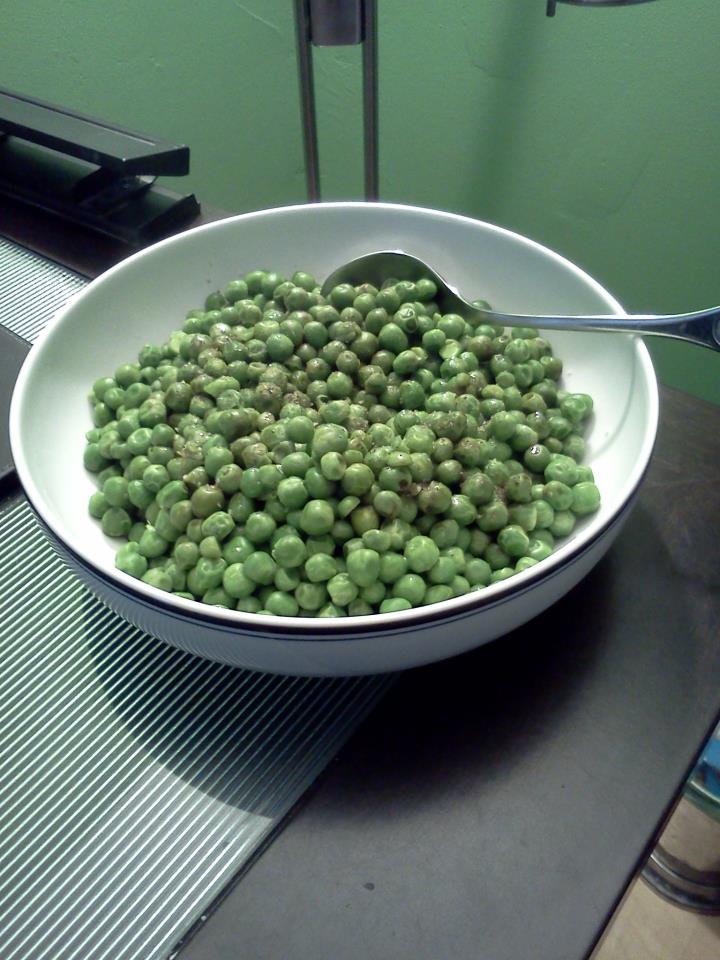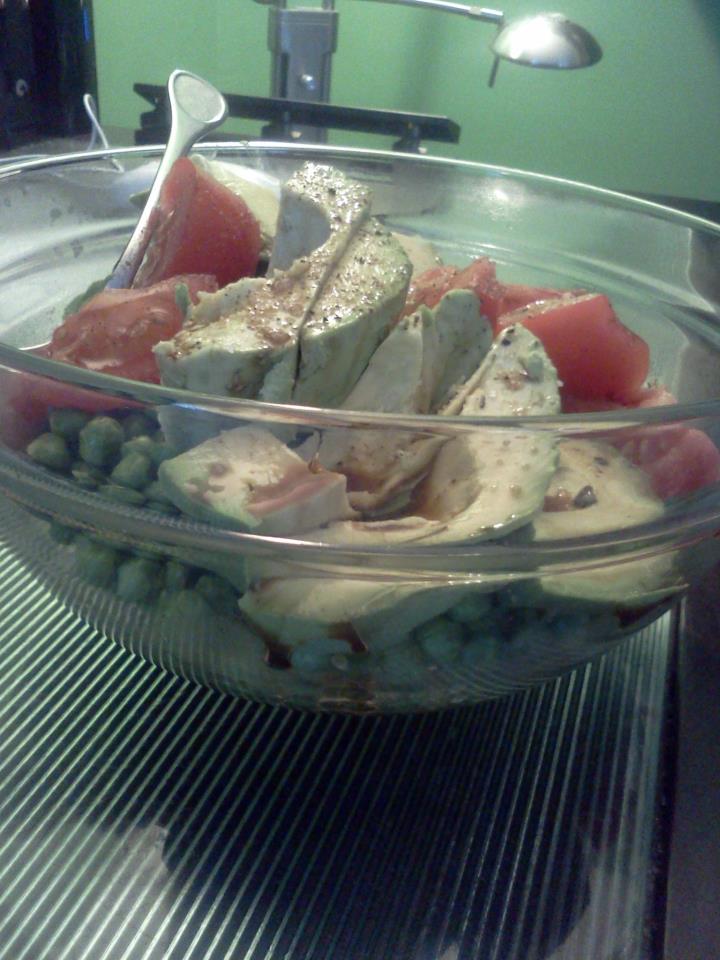“Want to lose weight? Avoid fruit.”
“Fruit is high-glycemic so don’t eat it if you want to avoid blood sugar problems.”
“I have systemic candida and can’t eat fruit.”
We’ve heard all this. Some of us believe it. Is it true?
Well…..let’s trace this back.
Sweet fruit contains fructose, a simple, natural sugar which is absorbed directly into the bloodstream during digestion. It is instant fuel, which all cells need to varying degrees during times of various activity.
When fresh, raw fruit is eaten, with the fiber intact, the fructose enters the digestive tract, passes through the intestinal wall, and becomes blood sugar which easily & quickly moves out of the blood stream into the cells of the body providing fuel for activity.
Insulin, produced by the pancreas, is responsible for transporting the sugar from the blood and into the cells.
Seems clear & safe so far, right?
Problems with fruit sugar start to arise when the sugar can’t get out of the blood stream in a timely fashion and sugar starts to build up in the blood causing insulin levels rise. Blood sugar concentration gets too high for too long (hyperglycemia) and starts to create problems like candida, fatigue, diabetes, or weight gain (fuel held in reserve).
What causes this problem?
Ready?
FAT. Fat in the diet clogs the blood creating a coating on the walls of blood vessels, the cells’ insulin-receptor sites, the sugar molecules, and the insulin.
Too much fat in the blood slows down and inhibits the movement of sugar out of the bloodstream.
So the problem with eating fruit is not about the sugar in the fruit, but about the fat present in the blood blocking the sugar from reaching the cells.
Ah ha!
So how can one safely eat fruit in order to reap the benefits of the water-dense, highly nutritious, and abundant food?
Monitor & limit fat intake.
The average American diet is 45% of calories from fat. The average raw food diet is 60% of calories from fat (think avocados, coconut, olive oil, nuts). The ideal amount of fat intake for a diet high in fruit is 10% of calories.
You’ve got to be kidding me, you say.
Well, that’s the deal if you want to reap the all the amazing benefits of eating fruit…which I highly recommend as enzyme-rich, alkalizing, oxygen-dense food.
Story from my personal body lab:
I had a happy olive oil kick going there for a while. I was drizzling it on my peas with balsamic vinegar and making a delicious herbal dressing for my mega-salad. I had read Dr. Graham’s 80/10/10 book a while back but my intelligence was reawakened when I recently watched Dr. Novick’s video titled Olive Oil is Not Health Food.
I felt sad by this awakening because I have access to some of the most beautiful olive oil in the world and I love the taste. I believe that olive oil is a superior oil when oil is to be enjoyed, but oil is pure fat (no carbs nor protein) and it’s easy to overdo it. And even the most beautiful olive oil is still fractionated oil…oil separated from its whole food source, in this case olives.
While I have not read any supporting material to confirm my hunches, I believe that fat interferes with the absorption of salt also. I eat pure unrefined sea salt on my veggies (my food diary here). I began to develop minor edema around my ankles (“puffy” ankles from water retention) which bothered me terribly since I was making an effort to eat a very simple, clean and highly nutritious diet.
After seeing Dr. Novick’s video and knowing Dr. Graham’s guidance, it occurred to me, with my over-abundant enjoyment of very beautiful olive oil, that the fat content of my blood may very well be interfering with the processing of salt in my body like it does sugar.
So I made a change. I started using whole avocado (fat, carb, and protein) for my fat instead of oil, continued with the sea salt, and I started drinking cranberry concentrate to flush the fat from my liver. Four weeks later, I can eat sea salt without any development of edema.
Peas Before: extra virgin olive oil (organic, first cold pressed), balsamic vinegar, sea salt & freshly ground black pepper
Peas After: avocado, tomato, balsamic vinegar, sea salt & freshly ground black pepper (This was the genesis of my now famous Hip Pea Power Bowl recipe.)
I’m convinced that fat interferes with sugar AND salt. So the advice need not be “reduce sea salt” or “avoid fruit” but “limit fat.”
At the end of the day, there is no problem with fruit. Only our misunderstanding of fruit. Watch your fat intake, make all your fats whole fats, and enjoy an abundance of fruit & vegetables!





{ 26 comments… read them below or add one }
So . . . how does the fat from avocado differ from the fat in olive oil re: allowing fruit and salt to get to the blood stream. Isn’t fat still fat? Just wondering 🙂
Olive oil is fractionated in that the oil is separated from the whole food. Olive oil is 100% pure fat. Avocado is still intact as a whole food and contains 77% fat, 4% protein and 19% carbohydrates.
For a fruit, avocados are very high in fat. True low-fat, raw vegan eaters will eat at most 1/4 avocado for all their fat intake for the day. That is not me and I eat the whole thing, but it is the bulk of my dietary fat for the entire day.
Fractionation is the same with sugar from fruit. Eaten with the fiber, the fruit sugar absorbs slowly and differently than if you juiced that same fruit and drank the concentrated, fractionated sugar which absorbs into the blood at a much quicker rate.
There are thousands of components to one fruit and many have not yet been discovered nor is the collective synergy entirely understood, but it is generally regarded more wise to eat a whole food rather than an isolated component of that food.
Does that make sense? Thanks for the great questions, Jan!
Carla Golden recently posted..How To Drop the Guilt Over a Non-Traditional Family Meal
So what is your take on coconut oil? ….. I am still trying to eat avocados but just can’t seem to get a liking for them 🙁
Hi Janelle~ For oils, coconut is one of the better ones. However, like olive oil, it is fractionated meaning that it’s been separated from the whole food. To get some healthy fats into your diet while avoiding fractionated oil and skipping over avocados, try whole nuts, whole coconut or whole seeds. They can be processed (ie: blended), just not fractionated (ie: separated into oil). If none of that works for your dish/recipe, I’d use coconut oil or olive oil sparingly and periodically. Does that help?
When I switched from typical raw to low fat high fruit, I saw a great increase in my energy level. Before, I was falling asleep at my desk and had lost motivation. I ate minimal fruit, lots of veggies but with the majority of my calories from avocado, seed pates, nut butters, coconut, etc. Now I eat loads of fruit and keep my fatty foods down to 1/4 avocado or 2 Tbsp seeds/nuts a day.
Fantastic fruit testimonial, Adria! Thank you!
Hi Carla, great article and this awareness needs to be spread throughout the world! I am also studying at the university of natural health, doing a holistic sports nutrition degree, how is your phd going? I have found the course there to be the most enlightening information ever and would love to continue on to do a phd.
Having lived 80 10 10 now for over a year i find it fascinating the war going on between high protein (well really high fat) low carb palaeolithic type diets and 80 10 10 type diets.
I have come from a place of non judgement as a few years ago i never thought of these things, and looking at the arguments coming from the paleo side, as convinced as they are, they seem to completely lack the substance, truth, logic, common sense, science and results backing up the 80 10 10. Anyway each to there own. The thing that amazes me is how two camps, both searching for optimal health, can be so opposed to each other.
Matthew Bate recently posted..THE ALKALINE DIET : WHAT YOU NEED TO KNOW
Hi Matthew! So lovely to meet another UNH student! I am due to submit my thesis for my BS next week. I’ve written on Heliotherapy which is near and dear to my heart. Then on to MS and PhD! I too have been mostly 80/10/10 for almost a year (my Food Diary is here) and have never felt better. Yes, the division between food philosophies is staggering and disheartening. I rarely get caught up in the food battles anymore. It’s much easier & pleasant to attract interest in 80/10/10 or plant based by being happy, peaceful & healthy. So glad you wrote. Please stay in touch! Best, Carla.
Matthew, really, I could say the exact same thing about 80/10/10 advocates… Both sides have propaganda that lack scientific research to substantiate themselves. I’ve never seen any of the more famous leaders on either side back up their diet with scientific research. As for the doctors who advocate for either side, they work on what we know about biology, what “should” be the case, and testimonials from their clients. We need more scientific method lest we devalue the name of nutrition.
Thank you Udo. You make good points. Each person needs to decide for him/herself which approach makes best sense to them, what are their wellness goals, and what diet aligns with their ethical values. While I share many beliefs with the paleo crowd, eating the bodies of animals does not align with my ethical values. Being able to smartly eat a high-fruit diet sustains my health and meets my wellness goals.
Do you have any actual articles or studies you can link to with some hard science behind them about your statements about fruit (and a 10% fat diet!?)
Absolutely Sachi! You can read 80/10/10 by Dr. Douglas Graham which will give you all the information you need. You can also get to know his website http://www.foodnsport.com which can get you started. What I have learned about the low-fat, high-fruit diet has come in large part from Dr. Graham and his students.
Also, Dr. Neal Barnard’s book on reversing diabetes. It’s called /Neal Barnard’s Program for Reversing Diabetes/. He advocates a vegan, high carb, low fat diet to help the body heal insulin resistance and type 2 diabetes. It’s a fantastic book.
Brilliant, Heather, thank you for adding that!
Dear Carla,
Thank you for such an insightful view on fruit and fractionation. I itch terribly whenever I eat even the smallest amount of fruit. Is 80 10 10 suitable for me?
Thanks
Thank you Missy. If you have an allergy to fruit, then 80/10/10 would not be an ideal lifestyle for you. However you think that the raw, whole fruit is triggering a detox reaction, you may want to stick it out.
Yea i would stick with it for a while and make sure you are eating ripe fruit and the highest quality possible. if that doesn’t work do the mcdougall type of diet which is starches instead of fruit based.
Good advice John. Also there could be a candida overgrowth situation at hand causing the itch. Avoid combining fruit with any fat (nuts, avocados, etc.). If you need to combat candida overgrowth, check out this article: How to Halt a Candida Bloom
this is the first time I have heard it explained this way and it is very clear now! THANK YOU!!!
Glad this article helped Tina! Thanks for taking the time to read & comment.
Has anyone read Dr. Esselstyn’s work? He makes a very good case against any kind of oil with 30 years of research. Also Dr. McDougall’s work is also backed by research. The only question I have about fruit is Dr. McDougall says it raises your triglycerides! I eat fruit I just don’t eat a lot of fruit. I have made the ice cream for a while now Carla and I notice that it is a bit to much sugar for me but great as a treat! Even though it is a different type of sugar it still affects me the same way as regular sugar!
Yes, very familiar with the work of Drs. Esselstyn and McDougall. Excellent resources! I try to eat my big fruit meals on days when I know I’ll be exercising.
Here’s more about the oil issue: 6 Health-Preserving Reasons to Stop Consuming Oil
Hi Carla,
What do you do for essential fatty acids as avocados are not a great source and you only eat one daily? And without much healthy fat, how do you make your hormones as they are derived from fat?
Thanks,
Kenneth
I currently eat a whole food plant based diet and get adequate fat from nuts, seeds, avocados, and a bit of olive oil on salads.
Hi Carla,
I am really trying to switch my diet around. I’ve always enjoyed eating healthy, but perhaps *too* much of it. Fruits make me happy so when I saw your page “Fruit Til 5”, it clicked: “Oh yay!! Something I can definitely do!”. Do you have a book/booklet on this? i’d love to purchase 🙂 Also, I am trying to figure out the proportions here… 80/10/10. I am trying to lose 25lbs, and trying to get in about 1200-1400 daily calories. so I would need 120-140 grams of fat? it seems like a lot to me, I try to avoid it at all cost. By avoiding it, I may have created a problem… Can you please tell me what type of protein you usually incorporate in your 10%? I usually have a nice salad at night, but i don’t eat meat, but my neighbor has happy free roaming hens and happily give me their eggs. They are out of this world… And that is what I top my salad with and vegan cheese. I know I can do better…
Hi Amey, My Fruit Til Five™ plan is now available in my free Vegan Key™ program. To fully understand the 80/10/10 approach I would read Dr. Douglas Graham’s book titled 80/10/10. He goes into deep detail there more so than I can sum up here. I am fully vegan and eat whole plant foods so all my protein comes from sources like veggies, legumes, grains, nuts, and seeds. I avoid processed foods like store-bought vegan cheeses. Since you are looking to lose weight, I would also recommend Dr. Michael Greger’s book How Not to Diet. He has the best researched methods in his books. Best wishes!